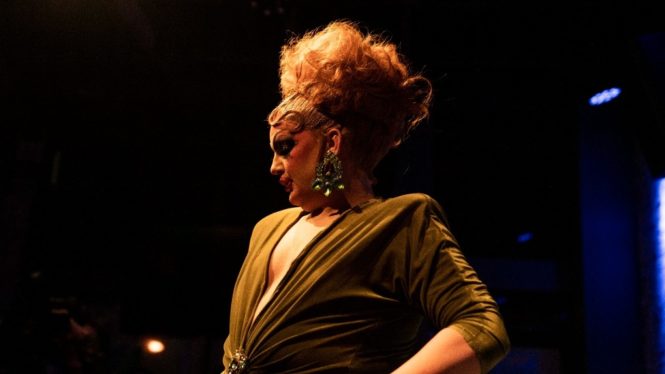A federal judge on Friday (March 31) temporarily blocked Tennessee’s first-in-the-nation law placing strict limits on drag shows just hours before it was set to go into effect, siding with a group that filed a lawsuit claiming the statute violates the First Amendment.
The decision comes after Memphis-based Friends of George’s, an LGBTQ+ theater company, filed the federal lawsuit Monday against Shelby County District Attorney Steve Mulroy and the state.
U.S. District Judge Thomas Parker issued the temporary injunction after hearing arguments on both sides Thursday.
Parker wrote that the state has failed to make a compelling argument as to why Tennessee needed the new law, adding that the court also agrees the statute is likely vague and overly broad.
The word “drag” doesn’t appear in the new law, which instead changed the definition of adult cabaret in Tennessee to mean “adult-oriented performances that are harmful to minors.” Furthermore, “male or female impersonators” are now classified as a form of adult cabaret, akin to strippers and topless, go-go and exotic dancers.
The law banned adult cabaret performances from public property or anywhere minors might be present. Performers who break the law risk being charged with a misdemeanor or a felony for a repeat offense.
“The law prohibits a drag performer wearing a crop top and mini skirt from dancing where minors might see it, but does not prohibit a Tennessee Titans cheerleader wearing an identical outfit from performing the exact same dance in front of children,” the initial complaint contends.
Parker also listed concerns aligning with the group’s argument that the law was overly broad, questioning the location specifications of a cabaret entertainment venue that might be viewed by a minor.
“Does a citizen’s private residence count? How about a camping ground at a national park?” Parker wrote. “Ultimately, the Statute’s broad language clashes with the First Amendment’s tight constraints.”
The complaint also details the efforts last year to block a drag show at a park in Jackson, west of Nashville, as part of a Pride festival. A legal complaint spearheaded by Republican state Rep. Chris Todd and Republican state Sen. Ed Jackson sought to prevent the show, forcing organizers to reach a settlement to hold the event indoors with an age restriction.
“After abusing the state courts to violate the First Amendment rights of Jackson Pride, Rep. Todd ‘was asked to come up with legislation that would make this much more clear’ — that drag performances in front of children are a violation of Tennessee law,” the complaint argues.
Parker referenced Todd’s actions in his Friday decision, saying the state attorney general’s office failed to give a clear answer on the purpose of the new law given Tennessee’s current obscenity laws.
During Thursday’s hearing, Mulroy told the judge that he didn’t object to a temporary restraining order.
“There has been much concern and confusion about the law from the community,” Mulroy said in a statement to The Associated Press. “This will allow the court to clarify the scope, application, and constitutionality of the statute. It’s important to understand the scope of this law so that it doesn’t have a harmful effect on constitutionally protected expression.”
A spokesperson for the attorney general’s office did not immediately reply to a request for comment on Friday.
The Tennessee drag law marks the second major proposal targeting LGBTQ+ people passed by state lawmakers this year. Republican Gov. Bill Lee signed into law GOP-backed legislation banning most gender-affirming care.
Lee has faced criticism for approving the anti-drag show law, particularly since a photo surfaced of him as a high school senior dressed in women’s clothing in 1977.
Lee called comparing the two issues “ridiculous.” When asked for specific examples of inappropriate drag shows taking place in front of children, Lee did not cite any, but said he was concerned about protecting children.



